December 30, 2024
Solar Analytics Software
The Solar Industry is growing at lightning speed. According to The Business Research Company's Solar Energy Global Market Report 2024, the solar energy market size will increase from $131.02 billion in 2023 to $169.81 billion in 2024, representing a compound annual growth rate (CAGR) of 29.6%.
Given the growth of the solar industry, data-driven insights are essential for staying ahead of the competition and growing your business.
This blog will dive deeper into how solar analytics and real-time data can help your solar business grow.
Key Takeaways
- Data Analytics plays an essential role in the monitoring and management of solar installations, ensuring peak performance.
- Real-time data makes it easier to make smarter decisions, which helps streamline operations and provide better customer service.
- Features like smart reminders, savings analysis, and personalized reports streamline solar management and offer actionable insights.
- This software can be used with solar apps and battery calculators, which helps in predictive maintenance.
- Sunbase can help you increase ROI, simplify energy monitoring, and reduce installation and operational costs; this will help you improve customer trust by offering accurate, real-time updates and personalized energy solutions.
What Is Solar Software?
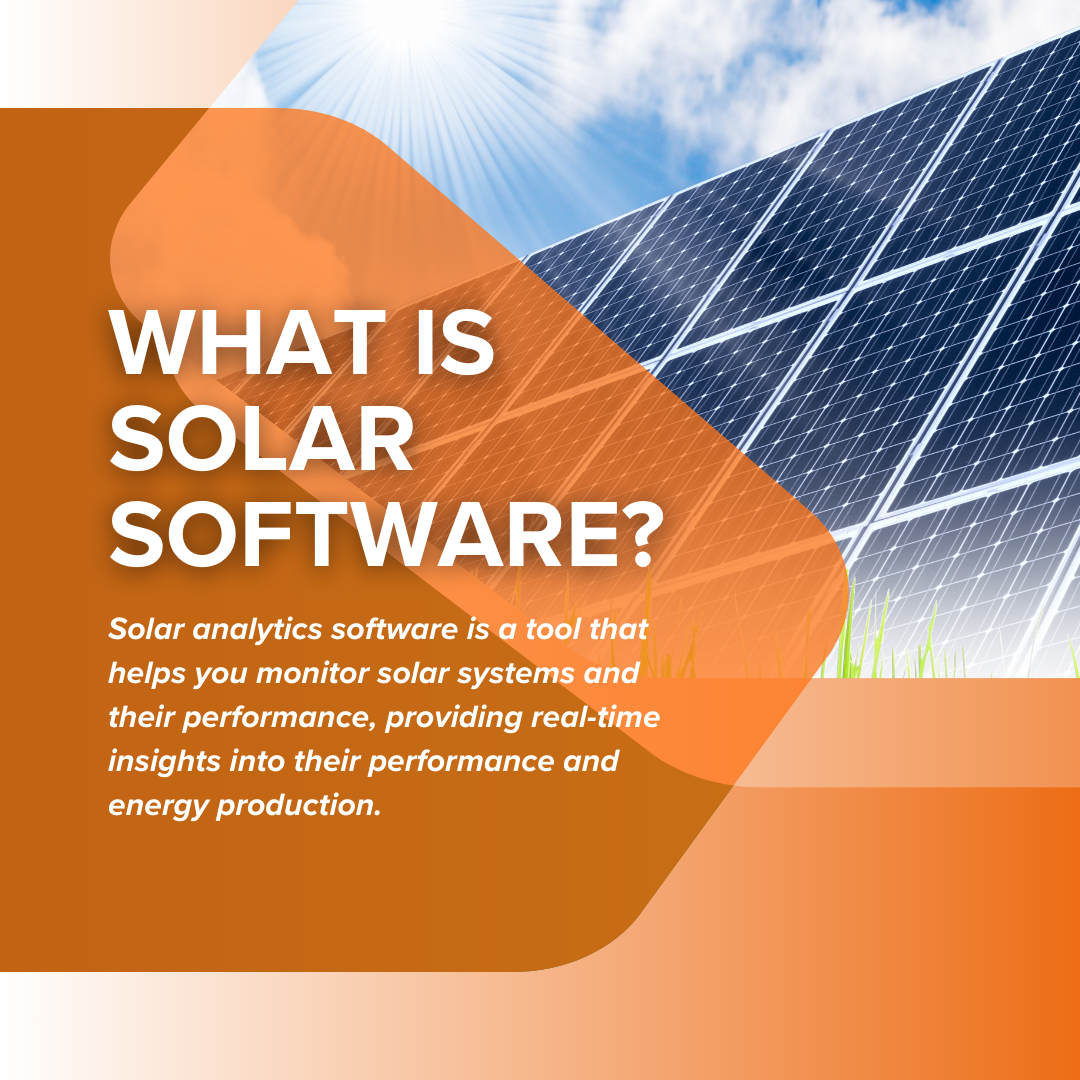
Solar analytics software monitors solar systems and their performance, providing real-time insights into their performance and energy production.
Solar systems can be optimized using these insights to reduce costs, increase performance, and save energy.
Features like smart alarms, savings analysis, and personalized reports help detect performance issues and track energy cost reductions, resulting in decreased energy usage.
How Solar Analytics Can Boost Your Growth?
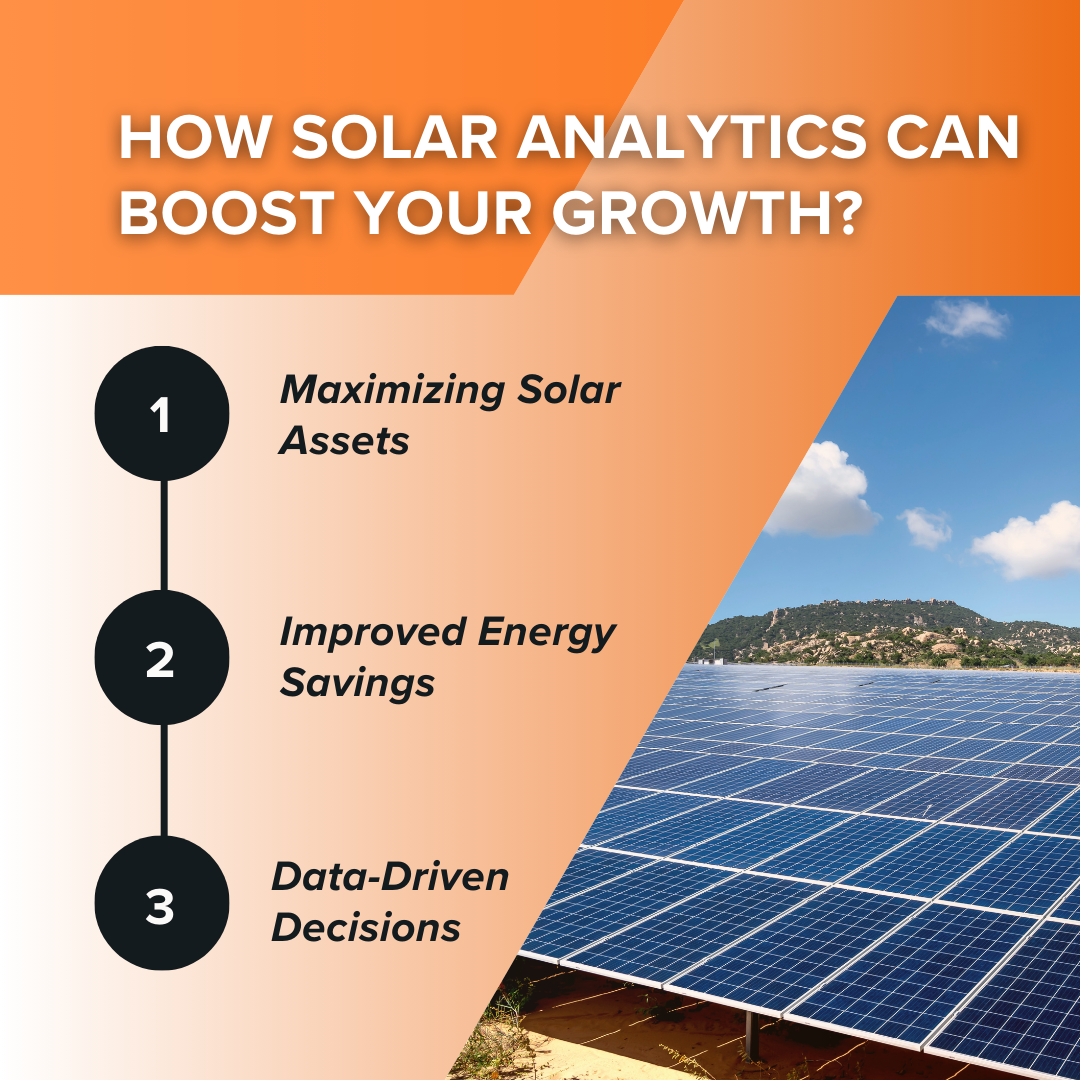
Let's find out how solar analytics can help you grow in the solar industry.
1. Maximizing Solar Assets:
Solar software allows you to monitor and manage a portfolio of solar assets, making the process efficient for all systems.
2. Improved Energy Savings:
Solar analytics can reduce energy bills. It helps identify issues early on and in real-time, making it easier to resolve them using the best electricity plan.
3. Data-Driven Decisions:
Using actionable insights from solar data makes investing smarter in renewable energy sources easier, which is essential for long-term growth and sustainability.
Also read: Data-Driven Insights: Leveraging Sunbase Reporting Tools for Better Decision-Making.
Why Modern Solar Businesses Need Analytics?
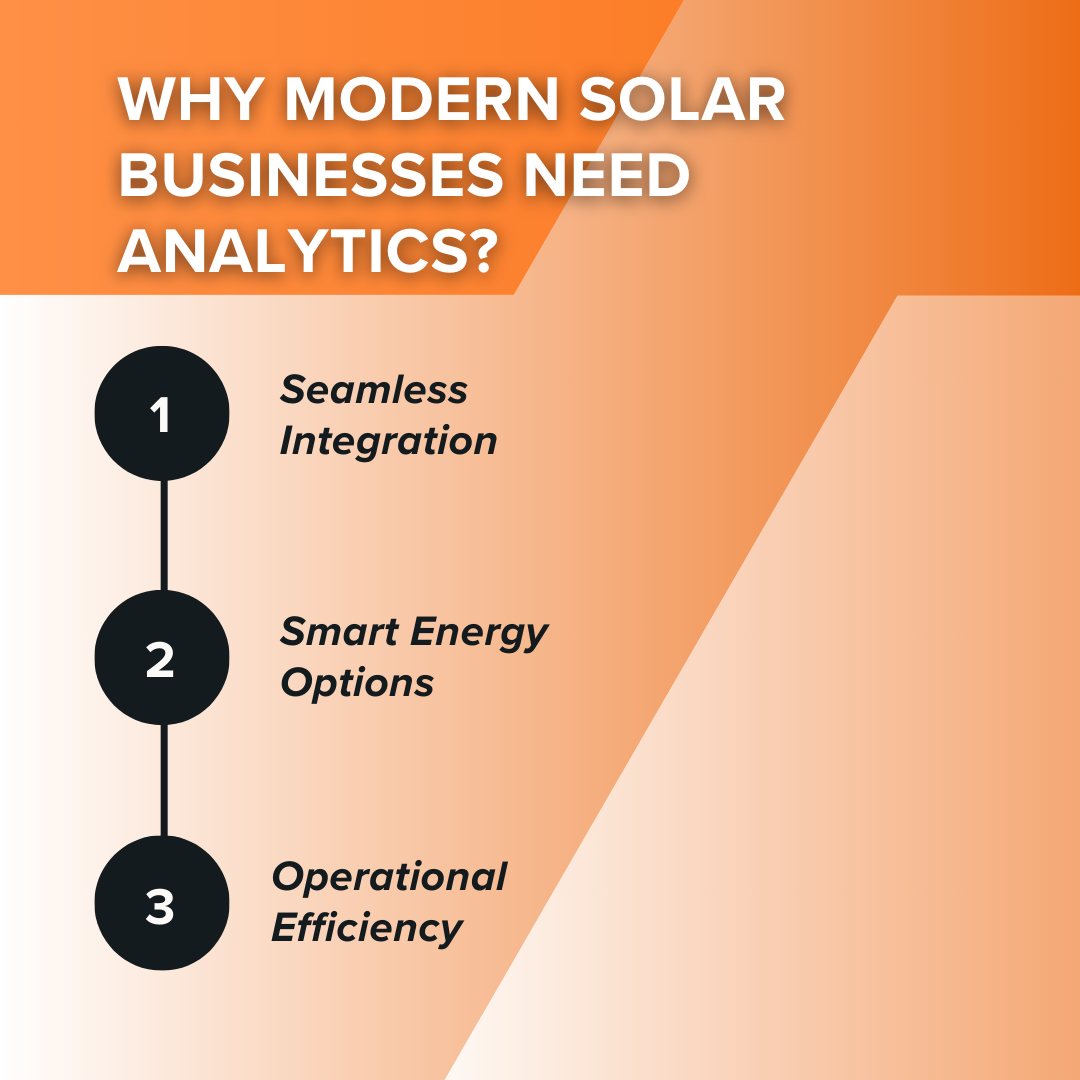
Modern solar businesses need analytics because, with the increasing growth of the solar industry, the competition is also increasing, making it essential for companies to use emerging technology and stay updated in their processes.
These are some ways solar analytics software can help solar businesses thrive.
1. Seamless Integration:
Modern solar analytics tools work in sync with solar apps and battery calculators. This streamlines the entire system management and allows businesses to:
- Centralized Data Management: Keeping all the data from various sources in one place helps companies gain a better overview of their operations and make better decisions.
- Improved Customer Experience - Better data management also enhances customer experience. A user-friendly interface and a standard dashboard make giving quick and prompt replies easier.
2. Smart Energy Options:
Personalized energy plans, monitoring tools, and digital twins help with predictive maintenance and ensure the system works longer.
- Personalized Energy Plans: Data analytics help companies understand usage patterns and preferences better. This information helps them create energy plans that meet customer needs while maximizing energy production.
- Predictive Maintenance - Using data analytics helps predict potential issues and problems. This helps maintain efficiency by making proactive decisions that lead to a longer operational lifespan.
3. Operational Efficiency:
Real-time tracking, smart alarms, and automated reports make daily tasks and operations easier and reduce the chances of human error. This helps businesses focus on growth while providing excellent service.
- Real-Time Tracking - Real-time system monitoring helps identify issues immediately, reducing downtime and optimizing energy production.
- Smart Alarms - Automated alerts help quickly resolve the issues; this reduces the risks of extended outages.
The Future of Real-Time Analytics in the Solar Industry
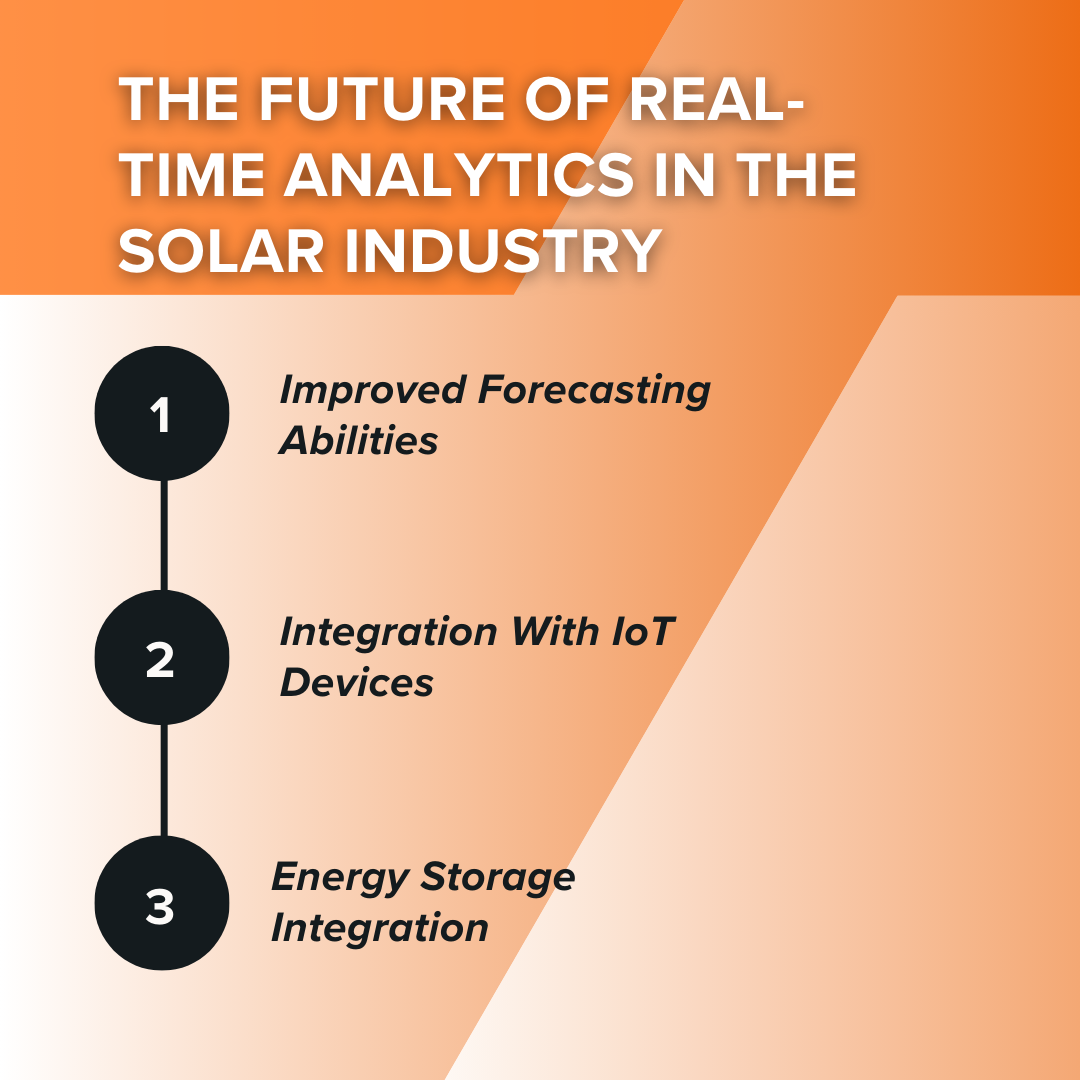
The future of Real-time analytics in the solar industry is bright and set to grow even more with advancements in technology and increasing adoption of renewable energy resources.
Below are listed some key trends and developments shaping this future.
- Improved Forecasting Abilities—AI and machine learning algorithms will transform forecasting in the solar sector. This technology can analyze large amounts of data to generate accurate predictions for solar energy generation.
- Integration With IoT Devices—Developing Internet of Things (IoT) devices will further improve real-time analytics. Smart meters, sensors, and monitoring systems will provide extensive energy production and consumption data, helping to manage solar power systems effectively.
- Energy Storage Integration—As energy storage solutions become the norm in solar installations, real-time analytics will start monitoring these systems. Effective management of charge and discharge cycles will be necessary to maintain grid stability and ensure a reliable energy supply.
The future of real-time analytics is that the solar industry is booming with enhanced forecasting accuracy, improved operational efficiency, and seamless integration with new technologies.
Solar businesses can optimize their operations, reduce costs, and create a more sustainable energy landscape as these developments continue.
What are the Benefits of Using Sunbase Solar Software?
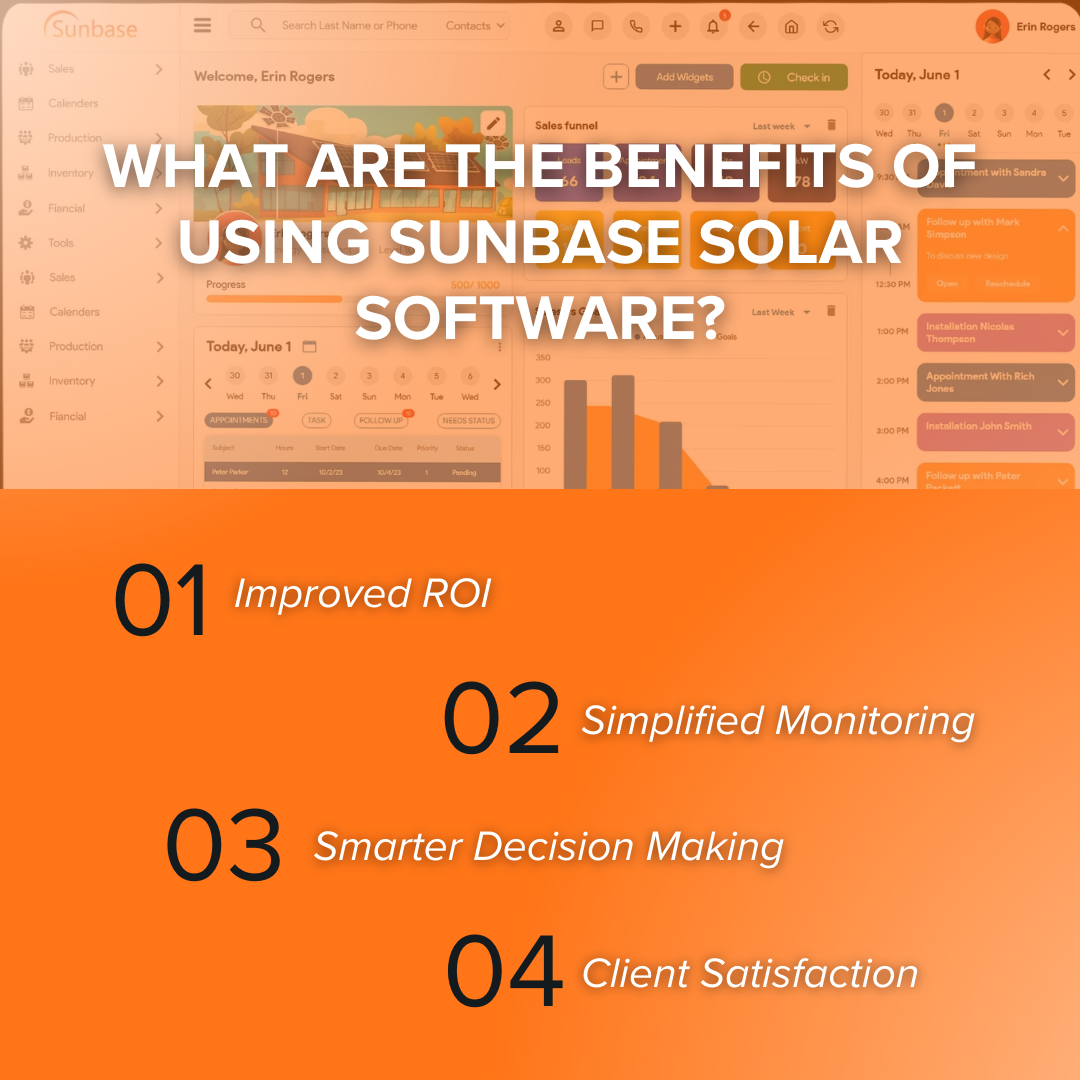
New Paragraph
I agree to receive marketing messaging from Sunbase at the phone number provided above. I understand data rates will apply, and can reply STOP to OPT OUT.







